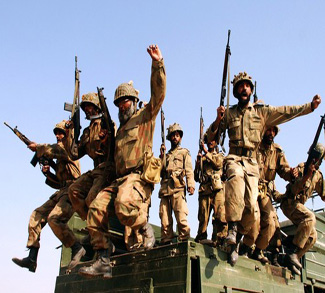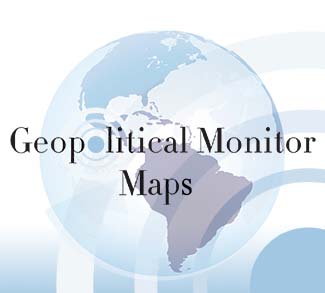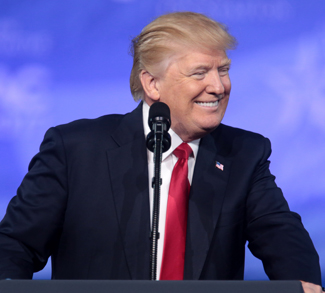It appears as though the latest attempt at reconciliation between the government of Pakistan and the Tehrik-i-Taliban Pakistan (Pakistan Taliban, or TTP) may be falling apart without any new breakthroughs. However, given the strategic dimensions involved, one has to wonder if any stakeholders were holding out any real hope of a peaceful resolution in the first place.
For several months, the government of Pakistan has apparently been attempting to end its conflict with the TTP, a militant insurgent network with ties to Al Qaeda and the Afghan Taliban. The TTP, which formed in 2007 and operates primarily in the northwestern regions on the afpak border, is fighting to impose strict Sharia law across Pakistan, and as such it rejects the country’s current constitution, which it believes fails to adequately enshrine Islamic law. Peace talks and reconciliation with the TTP were major campaign promises of Pakistani Prime Minister Nawaz Sharif prior to his election victory last summer.
Despite government efforts, peace talks have failed to gain any momentum, with both sides continuing to engage in military actions against the other. Brutal executions and military strikes have often left the talks stalled or officially suspended.
On March 1 the TTP agreed to a month-long ceasefire, during which time the peace talks could – it was hoped – make some real progress. Prime Minister Sharif is under a great deal of political pressure to end the fighting, which has resulted in thousands of deaths over the years. Despite their primary goal of overthrowing the Pakistani government and spreading Sharia law through jihad, the TTP has come forward with a few short-term, more realistic demands such as the release of several hundred prisoners, who the group claims to be non-combatants.
Earlier talks produced a ceasefire extension until April 10, but more recently, the TTP has announced that the combat freeze will not be renewed past this date. Both sides have asserted that the talks will continue despite resumed hostilities, though it is unlikely that any serious discussion will take place. Far more likely is that the peace process will regress to its familiar form: paused or cancelled every few weeks in the wake of some new attack.
It is still unclear what might have ever resulted from these talks. After all, the TTP’s ultimate objectives are completely unacceptable to Pakistan. Even if the TTP were to give up its goal of imposing Sharia law across the country, they would at the very least demand a full withdrawal of Pakistani forces from TTP-controlled tribal territory. Prime Minister Sharif could not accept these conditions – nor could the United States, which has shown no willingness to decrease its military footprint in the region.
Show talks
There are signs that this latest round of talks were an empty gesture by both parties. Whatever the prospect of success, Sharif is being pushed to the table by his constituents and by his own election promises. Whether or not anything substantive could be achieved through such a dialogue, he must be seen as at least making the effort, especially if he intends to eventually pursue a military option. The loss of life in such an action would be dire, and the TTP is not without its sympathizers among the people of Pakistan. Before engaging in a wave of aggression against the Taliban and paying a heavy price, Sharif has to first be seen as exhausting all other options.
Likewise, the TTP is surely aware that the government cannot accept the majority of the group’s demands. The release of political prisoners is plausible, but anything more than that could scarcely be considered. Taliban spokesman Shahidullah Shahid claims that the TTP had also asked for the establishment of a conflict-free zone and the suspension of security operations in that area. Purportedly suggested to build trust and relax the tension, these steps would effectively cede official control of state territory, which is something the government simply cannot do.
It has been suggested that the TTP was prompted by insurgent partners, such as the Afghan Taliban and the Haqqani network, to pursue the ceasefire. The reprieve may have provided an opportunity for affiliated insurgents to regroup in TTP-controlled border regions. In such a case, it would not matter to the Taliban what, if anything, the peace talks accomplished.
Peace a threat to US-Pakistan relations
These peace talks, however doomed, only put further strain on US-Pakistan relations.
However unlikely, a successful peace deal would only harm US interests, as the Pakistan Taliban operates in partnership with the Afghan Taliban and other extremist groups. If the Pakistani military were to decrease pressure on the Taliban over the long-term, it would risk creating a safe haven which the Afghanistan branch could use for retreat and a new base of operations.
It seems the United States is keenly aware of this fact. US cooperation has been limited during the ongoing peace process, apart from lip service. In late 2013, for example, emergent peace overtures with the Taliban were derailed when the US used a targeted drone strike to kill Hakimullah Mehsud, then-leader of the TTP, mere days before a government delegation was being sent to negotiate. Drone strikes persist as a controversial focal point for all parties, and the US has demonstrated that it intends to pursue its own military agenda despite any local backlash or official protest from Prime Minister Sharif.
While these drone strikes are incredibly controversial in Pakistan, they are popular in an increasingly war-weary United States. They have proven effective in eliminating high-profile targets, and they do so while minimizing the loss of American life. They have also been valuable to President Obama politically by allowing him to demonstrate his resolve and efficacy in the global fight against terrorism.
Bleak prospects for peace
These peace talks have not made a very strong case for themselves. Both sides appear to prefer pursuing their military objectives while making a show of reconciliation only when it is politically or strategically convenient. Additionally, the peace talks have not received any support from President Obama, who clearly prefers to continue the drone strike program and is in no hurry to help Sharif keep his electoral promises. It is clear that an indefinite truce does not serve any player’s political or military interests, and as a result, more stalling, suspension, and equivocation can be expected for the foreseeable future.




